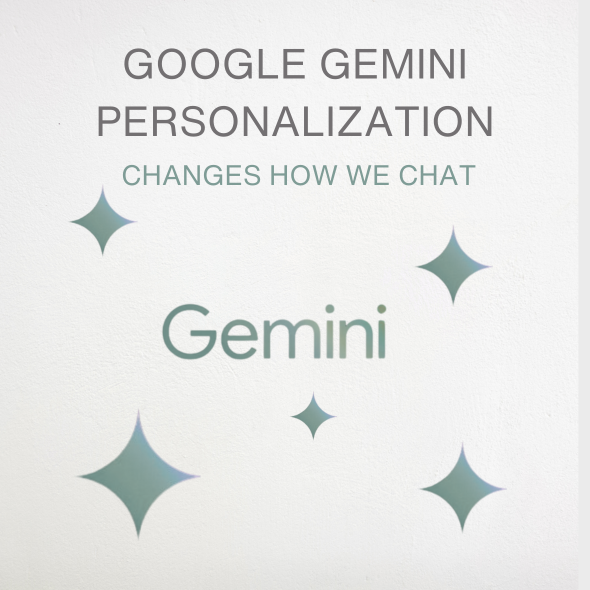The New Era of AI in 2025: From Gemini 3 to Creative AIs
Learn about the best AI tools for 2025, including Nano...
We use cookies for our website to give you the most relevant experience by remembering your preferences. By clicking “accept”, you consent to use of ALL the cookies
This website uses cookies to improve your experience while you navigate through the website. Out of these, the cookies that are categorized as necessary are stored on your browser as they are essential for the working of basic functionalities of the website. We also use third-party cookies that help us analyze and understand how you use this website. These cookies will be stored in your browser only with your consent. You also have the option to opt-out of these cookies. But opting out of some of these cookies may affect your browsing experience.
Necessary cookies are absolutely essential for the website to function properly. These cookies ensure basic functionalities and security features of the website, anonymously.
| Cookie | Duration | Description |
|---|---|---|
| cookielawinfo-checkbox-functional | 11 months | This cookie is set by GDPR Cookie Consent plugin. The cookie is used to store the user consent for the cookies in the category “Analytics”. |
| cookielawinfo-checkbox-functional | 11 months | The cookie is set by GDPR cookie consent to record the user consent for the cookies in the category “Functional”. |
| cookielawinfo-checkbox-necessary | 11 months | This cookie is set by GDPR Cookie Consent plugin. The cookies is used to store the user consent for the cookies in the category “Necessary”. |
| cookielawinfo-checkbox-others | 11 months | This cookie is set by GDPR Cookie Consent plugin. The cookie is used to store the user consent for the cookies in the category “Other. |
| cookielawinfo-checkbox-performance | 11 months | This cookie is set by GDPR Cookie Consent plugin. The cookie is used to store the user consent for the cookies in the category “Performance”. |
| viewed_cookie_policy | 11 months | The cookie is set by the GDPR Cookie Consent plugin and is used to store whether or not user has consented to the use of cookies. It does not store any personal data. |
Functional cookies help to perform certain functionalities like sharing the content of the website on social media platforms, collect feedbacks, and other third-party features.
Performance cookies are used to understand and analyze the key performance indexes of the website which helps in delivering a better user experience for the visitors.
Analytical cookies are used to understand how visitors interact with the website. These cookies help provide information on metrics the number of visitors, bounce rate, traffic source, etc.
Advertisement cookies are used to provide visitors with relevant ads and marketing campaigns. These cookies track visitors across websites and collect information to provide customized ads.
Other uncategorized cookies are those that are being analyzed and have not been classified into a category as yet.
Cyberia Tech, Inc. respects your privacy. This Privacy Policy explains how we collect, use, and share your information. By using our services, you agree to this policy. If any other agreements conflict with this Privacy Policy, the terms of those agreements prevail.
Cyberia Tech complies with the EU-US and Swiss-US Privacy Shield Frameworks for handling personal data from the EEA, UK, and Switzerland. In case of any conflict, the Privacy Shield Principles prevail. Learn more at Privacy Shield. Key Definitions
Information linked to an individual, transferred from the EEA, UK, or Switzerland to the U.S.
Data revealing race, religion, health, sexual orientation, and similar categories.
Effective Date: [ 2026 / 03 / 05 ]
Welcome to The Cyberia Tech ! By accessing or using our website or services, you agree to
comply with and be bound by these Terms of Use and our Privacy Policy. If you do not agree with
these terms, please do not use our Services.
Loading
0 %

Artificial intelligence is evolving rapidly, reshaping the way we interact with technology. One of the biggest trends in AI right now is personalization, where AI tools adapt to users’ preferences, behaviors, and needs. From search engines to social media, companies are pushing AI to become more intuitive and personalized.
In this article, we bring you the latest news in AI and tech, from Google Gemini Personalization update to Meta’s new AI chip, Bluesky’s privacy-focused AI training, and Apple’s struggles with Siri improvements. These updates highlight the ongoing battle among tech giants to define the future of AI-driven experiences.
Artificial intelligence is becoming more personalized than ever, and Google is leading the charge with its latest Google Gemini Personalization update. The tech giant has introduced a new “personalization” feature, allowing users to customize their AI interactions based on their Google app activity.
By analyzing search history, Google Gemini Personalization can tailor responses to individual interests, making conversations feel more relevant and natural. This move signals a major shift in AI development, where chatbots are no longer just answering questions but truly understanding user preferences.

With Google Gemini Personalization enabled, Gemini can suggest travel destinations, recommend restaurants, or even provide tailored responses based on past interactions. Google assures users that privacy remains a top priority, allowing them to control and disable the feature at any time.
This update not only enhances user experience but also positions Google Gemini Personalization as a strong competitor against AI assistants like ChatGPT and Microsoft’s CoPilot. Looking ahead, Google plans to expand this feature to other apps like YouTube and Photos, making AI assistance an even more integral part of daily life.
Meta Platforms, the parent company of Facebook, Instagram, and WhatsApp, has embarked on a significant venture by developing its first in-house AI training chip. This dedicated accelerator is designed to handle AI-specific tasks, aiming to enhance power efficiency compared to traditional GPUs. By creating custom silicon, Meta seeks to reduce its dependence on external suppliers like Nvidia, thereby potentially lowering infrastructure costs associated with its extensive AI investments.
The company has collaborated with Taiwan’s TSMC to produce the chip, recently completing the initial tape-out phase—a crucial milestone in chip development. Pending successful testing, Meta plans to scale up production for broader deployment across its platforms.

This initiative reflects a broader trend among tech giants to develop proprietary hardware tailored to their specific needs. Companies like Google, Amazon, and Microsoft have similarly ventured into custom chip design to optimize performance and control costs.
For Meta, the in-house AI training chip is expected to power recommendation systems and, by 2026, support generative AI products such as Meta AI. This strategic move underscores Meta’s commitment to advancing its AI capabilities while maintaining greater control over its technological infrastructure.
In a move to enhance user autonomy, Bluesky, the decentralized social media platform, has announced plans to allow users to decide how their data is utilized for AI training purposes. This initiative addresses growing concerns about privacy and data usage in the realm of artificial intelligence.
Users will have the flexibility to customize which portions of their data can be employed for AI training or to opt out entirely, ensuring that their content is used in ways they find acceptable.

This development signifies a shift from Bluesky’s previous stance, where the platform assured users that their data would not be used for AI training. However, due to its open-source and decentralized nature, Bluesky cannot prevent third-party entities from scraping publicly available content for AI model training.
By implementing a framework that grants users control over their data’s usage, Bluesky aims to balance the openness of its platform with individual privacy preferences, reflecting its commitment to user choice and data protection.
Apple is under scrutiny due to significant delays in rolling out promised enhancements to its voice assistant, Siri. These advancements, initially announced at the WWDC 2022 and featured in iPhone 16 promotions, aimed to introduce advanced AI capabilities for more natural and efficient user interactions.
However, these features remain undeveloped, leading to customer and analyst dissatisfaction. The situation has adversely affected Apple’s stock performance and raised concerns about the company’s current product announcement strategies compared to its historically reliable launches.

Internal reports reveal that Apple’s Siri team is grappling with development challenges, including hardware shortages for AI training and internal conflicts, resulting in significant delays. The anticipated AI-powered Siri may not be available until at least 2027, with a possible debut in iOS 20.
This delay has also impacted other Apple projects, such as the release of a smart display that heavily relies on the enhanced Siri capabilities. These setbacks highlight the broader issue of unmet expectations in AI advancements within the tech industry.
As AI technology continues to evolve, staying informed about the latest developments is crucial. Google Gemini Personalization is a clear sign that AI is moving towards more customized and user-driven experiences. Meanwhile, companies like Meta, Bluesky, and Apple are all making strategic moves that will shape the future of AI.
At The Cyberia Tech, we’re passionate about keeping you updated on the latest innovations in AI, software development, and technology. Follow us for more insightful content and industry updates. Stay ahead of the curve, because the future of tech is happening now!
You Can Get More Information!
